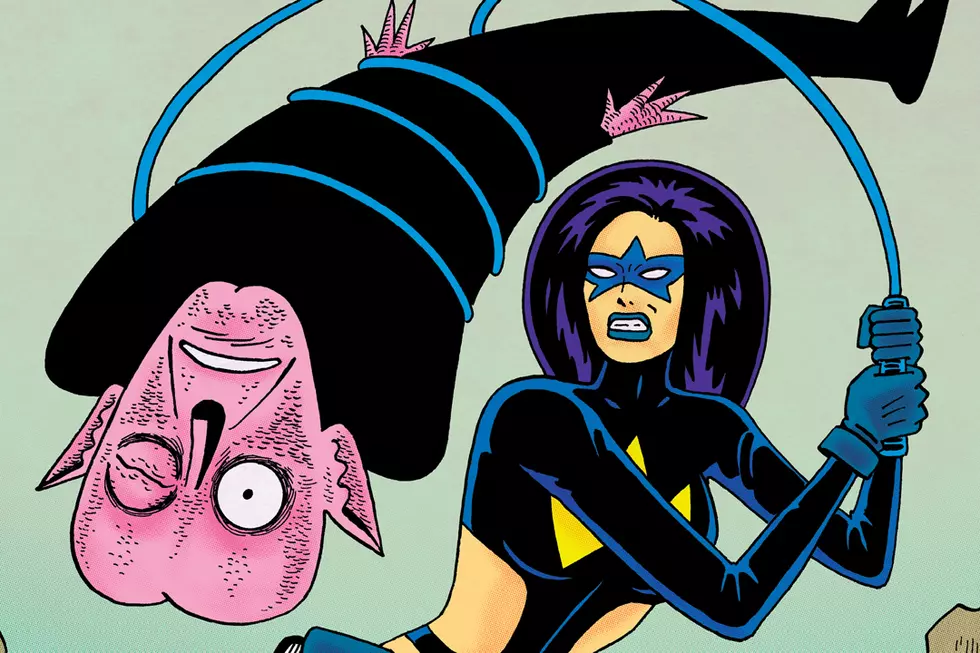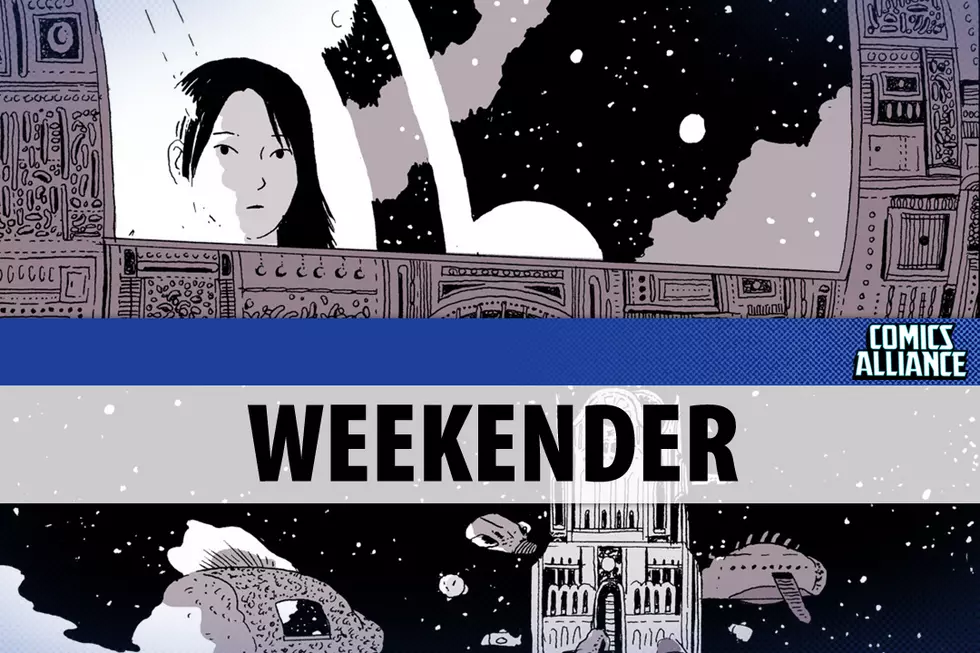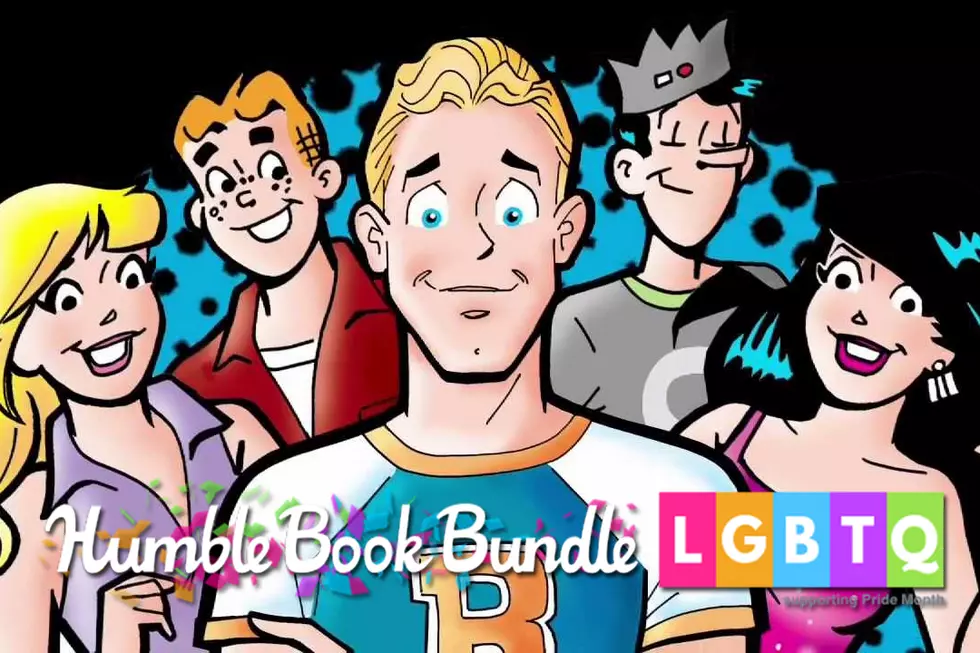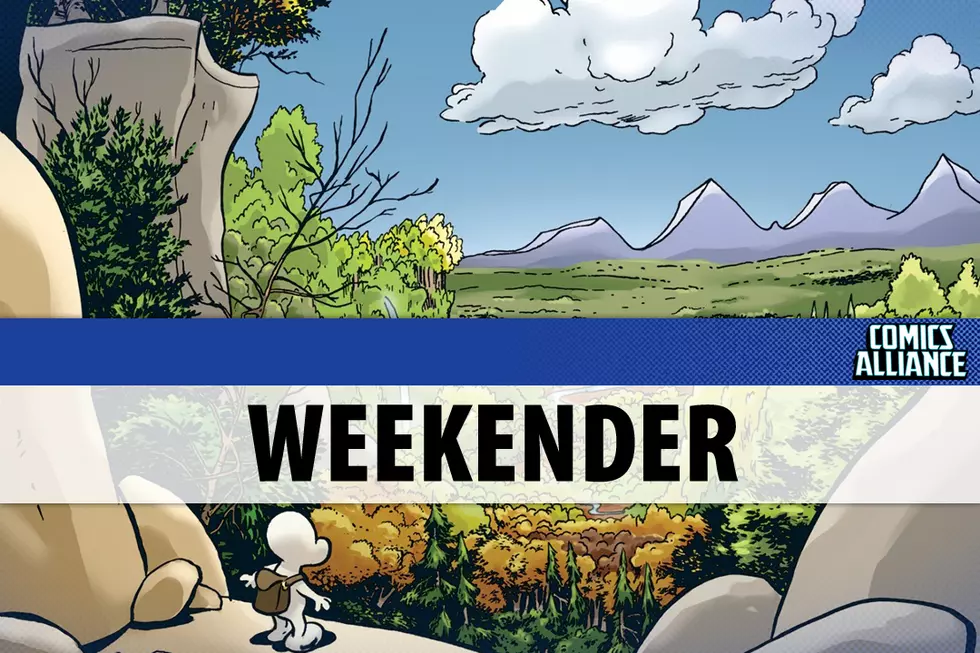![Soft Outside, Hard Center: High Soft Lisp [Review]](http://townsquare.media/site/622/files/2010/03/highsoftlisp-cover.jpg?w=980&q=75)
Soft Outside, Hard Center: High Soft Lisp [Review]

The back cover of the new Gilbert Hernandez collection from Fantagraphics proudly trumpets: "HIGH SOFT LISP is one of Hernandez's sexiest, funniest, and most freewheeling story collections." Frankly, after reading the book, I think the marketing team at Fanta needs to calm down, maybe go outside and get a breath of fresh air, or get hosed down with cold water. "High Soft Lisp" isn't exactly a romp. "Freewheeling" and "funniest" could easily be replaced with "fractured" and "depressing", though none of those adjectives precisely describes the work, which only points out further how facile the original description is in the first place.

One of the best jokes in the book involves a nerdy fanboy approaching Fritz at a high society party, and proceeding to tell her all about his sexual fixation on her image, only to finish by saying that her voice (the titular high-pitched lisping whisper) was so incongruous in his mind to her body that it caused him irrevocable psychological harm, and he is filing a lawsuit for damages. Throughout her life Fritz is mistaken for a bimbo, as if because her design so frankly screams sex, she is capable of nothing else. Conversely, despite her Ph.D. and genius-level I.Q., Fritz is a terrible judge of character, remorselessly vain, and sexually hyperactive. It's almost as if Hernandez is daring the reader to perceive a contradiction, only to mock said reader for thinking such attributes to be contradictory at all. Fritz is, in some ways, ultimately inscrutable.

In that revealing moment, though, questions leap to mind: just who is she smiling at, and why? The memory of someone? Herself? It couldn't possibly be the person in the room -- could it? Fritz remains ultimately inaccessible, and by the end of the story we're thrown right back into the deep end, with the patented Hernandez jump cuts taking us through the latest in Frtiz's sexual escapades by showing us slivers of action, snippets of dialogue, the rest to be filled in on our own.

More From ComicsAlliance




![‘The Twilight Children’ #4 Concludes Hernandez and Cooke’s Sci Fi Saga [Exclusive Preview]](http://townsquare.media/site/622/files/2016/01/twilight_featured.png?w=980&q=75)




